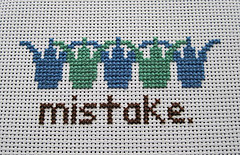
Here’s what I wrote in my AARP blog:
Trend alert or rather, trend-to-be alert. I recently heard of a new concept that sounds like a caregiver’s dream: a team of professionals from various disciplines (i.e. legal, financial, caregiving) who specialize in aging issues. Someone on the team steers you to other experts you need — and may not even realize you need. These pros confer to make sure all your bases are covered.
Rod Chamberlin, a financial planner in Irvine, California, has one such team. Besides a financial planner and eldercare lawyer, it includes a senior care placement expert, long-term care specialist, family advocate aka mediator, personal business facilitator (helps Mom cancel subscriptions and insurance, arrange documents, pay bills) and geriatric psychiatrist.
Clients hire whichever specialists they need and pay each separately.
I asked Chamberlin for the most common mistakes his group sees boomers make regarding their parents’ financial, legal, and care decisions. This applies to you, too!
Here are his top five:
- Becoming vulnerable to scammers and unqualified professionals. “It doesn’t just happen to dumb people,” says Chamberlin. “I’ve seen professionals whose parents were scammed!”
- Not having proper legal, financial, and healthcare documents. At the least, you need power of attorney, a will and/or trusts and an advanced care directive.
- Misunderstanding your options for senior care and how to pay for it: assisted living vs. a nursing home vs. memory care. They’re different, as is Medicare and Medicaid. Do you qualify for benefits i.e. a veteran or spouse of a vet may be eligible for paid in-home or long-term care? Some long-term care life insurance policies pay in advance on a death benefit (tax-free cash now), and, in some situations, a reverse mortgage makes sense to help bankroll care costs.
- Holding inappropriate investments and/or selling investments that trigger unnecessary taxes. A professional can identify the best assets to sell (to pay for care or simply maximize investments) that won’t have a big tax impact.
- Not taking advantage of tax credits, exemptions, exclusions and deductions. If you qualify, you may be able to claim your parent as a dependent or write off healthcare costs, for instance.
Chamberlin’s model is new; there aren’t many like it — yet. If you can’t find a similar group, then look for a legal or financial pro able to coordinate efforts with other specialists.
(Thanks, adult son, for the blog idea.)
Photo Courtesy of Ponyinarope via Creative Commons

